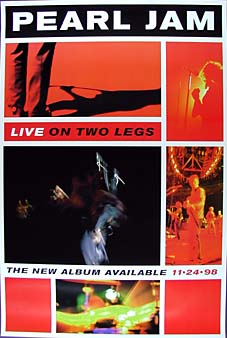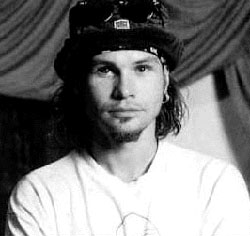
 HAPPY BIRTHDAY AMENT!!!!!!!!!
HAPPY BIRTHDAY AMENT!!!!!!!!! AKA Jeffrey Allen Ament
Born: 10-Mar-1963
Birthplace: Big Sandy, MT
Gender: Male
Ethnicity: White
Sexual orientation: Straight
Occupation: Musician
Level of fame: Niche
Executive summary: Pearl Jam
He is proprietor, together with brother, of Ames Bros., responsible company for posters of the PJ
He like Basket, suport Seattle Supersonics
He wrot the biography of the band
Green River Bassist
Mother Love Bone Bassist
Pearl Jam Bassist
Temple of the Dog Bassist
FILMOGRAPHY AS ACTOR
Dogtown and Z-Boys (19-Jan-2001) Himself
Singles (18-Sep-1992) Himself

Al Weisel
Jeff Ament of Pearl JamBy Al Weisel
Rolling Stone, August 8, 1996, p. 28
Jeff Ament seems to have discovered soul asylum. After several years under the pop microscope as Pearl Jam’s chapeau-lovin’ bassist, the 33-year-old California resident has taken refuge in Three Fish, a side project with friends Robbi Robb, formerly of Tribe After Tribe, and Richard Sturverud. Borrowing their name from a poem about three fish of varying intelligence by Rumi, a 13th-century mystic, the band recently recorded a debut of free-form spiritual melodies that owes more to 70s prog rock than to Pearl jam’s late ’70s arena-rock inspiration. A reinvigorated Ament stopped by New York recently on his way to Turkey and Egypt to see local musicians. (Three Fish are currently on tour. Needless to say, they’re not using Ticketmaster.)
Which fish are you: the intelligent fish, the half-intelligent fish or the stupid fish?I’m probably the stupid fish. Sometimes I feel lucky to be one. I get lost in my right brain, especially in creative things. When I moved to Seattle, I was the epitome of one because I came from Montana. I was hanging out with kids who were five or six years younger who knew much more about living in the city. They had done drugs, had sex a million times. I look at them now and realize their childhood was taken away. I wasn’t pressured to be an adult - even though at the time I was pissed at my parents because they made me grow up in Bumfuck, Montana.
Why did you pick Seattle to move to? I had a friend who moved there. I went to visit him, and I was like, “I have to go someplace where I can soak myself in a creative atmosphere.” There were shows that had huge impacts: Black Flag, Bad Brains, X, Dead Kennedys. We opened for Black Flag, and none of the bands had dressing rooms, but Henry Rollins had his own. He had struck me as different from that.
So you’re saying he was a punk diva? [Laughs] You said that. He’s an interesting guy. I don’t relate to him necessarily.
How’d you get involved with Three Fish? Tom Petty gave me a tape of Tribe After Tribe. Pearl Jam was out touring, so we asked Tribe After Tribe to come out. Robbi and I hit it off: He grew up in a Tibetan Buddhist community, and I grew up in a hard-core Catholic one. It’s interesting how similar the experiences were: sheltered, quiet and introspective. Then when I was in Cairo and Turkey last year, I saw dervishes and incredible musicians performing rituals. It was one of the most captivating experiences I’ve ever had.
What do you get to do with Three Fish that you don’t get to do with Pearl Jam?I played djembe, percussion, keyboards and I sang. With Pearl Jam, everybody is so good at what they do, it’s hard to get up the courage to say, “Can I sing this part,” or, “I want to play guitar.” I feel like I have more courage to do that.
When did you first play with Robb?We went to Big Sur about three years ago and hung out at the Esalen Institute. Neil Young had invited Pearl Jam to his place for a barbecue. I said to Robb, “We can go if you want.” Everybody picked up instruments and started playing.
Who was there?Eddie [Vedder], Dave [Abbruzzese], Robbi, Neil, managers and family. Robbi had some of the same qualities as Neil. I was watching these two musicians being completely uninhibited There was no fear, so the rest of us just fell in. At that point I knew I wanted to play music with Robbi. When did Pearl Jam last get together? Two weeks ago. We just finished making a record I imagine it’ll come out in late summer or early fall: Everybody wants to play shows so we’re going to after that.
What is the new record like?The fact that everybody got away from what Pearl Jam are supposed to be brought a new feeling. Mike [McCready] did things with Mad Season that allowed him to bring back some confidence. Stone [Gossard] brought back hip-hop elements. Jack [Irons] went into the studio and created these drum songs, and he wrote based on that. Eddie did things with Mike Watt and with Nusrat [Fateh Ali Khan]. Not that this record is going to be a drastic left turn, ‘cause we’re still a rock band, but it’s been allowed to wander a bit.
Did you win anything in your fight over service charges with Ticketmaster?Yeah. People understand better where their money is going. And we’ve gotten incredible support from fans. A lot of bands said after the fact, “We totally support you.” The only people who really supported us were Tim Collins and Bertis Downs, who are Aerosmith’s and RE.M.’s respective managers.
Do you feel like you were left in the lurch? To an extent, but nobody had the power we had or the support from our record company. We’ve always been a band that stood up for what we thought was right.
Some thought Pearl Jam were ungrateful in their acceptance speech at the Grammys this year.Every few years I’ll party way too much to remind myself what an idiot I am, and going to the Grammys was a little like that. It was all these high-society people coming up to us and acting like they were related to us. I think Eddie explained himself really well. It was like, “C’mon, people, wake the fuck up.” Maybe one of us should have expanded on that. The reason we’re there is to hang out with our peers. This little award saying we’re better than somebody else is ridiculous.
You get the impression Vedder’s not very happy. Do you ever feel like telling him, “Hey, lighten up a little”?Oh, sure. But there’s probably times when he says, “Jeff, lighten up.” He’s a really sensitive guy. I can’t say you’re a jerk because you’re too sensitive. People see him for 20 seconds at the Grammys and think, “Goddamn, he must be like this all the time. I feel sorry for his friends.” I’ve been out in the middle of the ocean with him just being ecstatic on a surfboard. So, you know he has his moments.■
Q & A With Pearl Jam's Jeff Ament Aidin Vaziri
Sanfransisco Cronicle, Sunday, October 29, 2000
Last month, stalwart Seattle grunge band Pearl Jam flooded record stores with 25 unedited two- CD live sets documenting the band's entire 2000 European tour (minus their tragic festival appearance in Roskilde, Denmark, where nine people were crushed to death when fans rushed the stage). The official bootlegs, as they're called, set an unusual challenge for the group's die-hard fans, who gobbled up so many copies that the band became the first in history to have more than one live album on the charts at once. It also set a record by debuting five albums on the charts in the same week. We spoke with band founder and bassist Jeff Ament, 36, about this unusual circumstance. Pearl Jam plays the Shoreline Amphitheatre on Tuesday.
Q: Have you sat down and listened to all these recordings?A: Oh, no. No way.
Q: Would your head explode?A: I don't know. One reviewer was actually going to review all the records over one weekend, but he only got through six or seven of them. I guess the review was a little diary, and he started out being a huge fan, then he got a little frustrated and, by the end, hated us.
Q: At what point did he want to kill Eddie Vedder?A: I don't know.
Q: Do you think someone who listens to all these has to be kind of crazy?A: A little bit, but I guess when I was a kid and if I would have seen the Who or Aerosmith or the Beatles at a live show, I would have bought a few of their bootlegs.
Q: You think you could make it through 25 double- sided live albums by your favorite band?A: I guess if I was a collector, I could imagine it.
Q: Just how many versions of ``Even Flow'' does the average person need?A: Well, I don't think we expected anybody to buy all of the CDs. It was more like, ``Let's just do this. The bootlegs are out there anyway, and they're all crappy quality. Let's just put this out there and charge the least amount we can and have them be of consistent quality.''
Q: A lot of people think you're just ripping off the kids.A: If you're a collector and you bought seven or eight normal bootlegs, it would be the same as buying all 25 of ours. It's almost a three-for-one deal.
Q: But even if some kid buys five of these things, he's making you rich.A: We didn't set out to make money. I remember walking into Tower Records in New York and these two guys were talking about it. One of them was saying what corporate money-grubbers we were, and the other guy was like, ``Yeah, but you're getting two CDs for only 13 bucks.'' So it was almost like an argument with our conscience in front of us. They were arguing about all the stuff we talked about before we put them out. It was pretty weird.
Q: Why didn't you just put them all in one cheap box set?A: I don't think there's any way you can release 50 discs for $150. At the end of the day, we're making a lot less on this than we do on a normal
Q: Is Pearl Jam a greedy band?A: I know how much this band has grossed and I know the net is a very small figure compared to what we've grossed. I know all the different ways we haven't been greedy. Merchandising companies tell us we can charge 30 bucks for a T-shirt, and we choose to charge 18 bucks. We always try to undercut whatever a comparable band is doing. I know in our own hearts we haven't been as greedy as we could have.
Q: Is Pearl Jam an arrogant band?A: I don't think we've ever been the critics' darling, so there's a part of that that's always been a motivating factor. There are some things early on that Kurt Cobain and some other local people said about us that pigeonholed us as being rock stars or whatever. For some reason, that stuff never left my craw. The fact of the matter is, I was born in a pretty poor family and I've always had to have a day job up until 10 years ago. Maybe some of that drive that people see is maybe me not wanting to work in a restaurant for the rest of my life.
Q: Do you sometimes wish Pearl Jam were more of a fun type band like Sugar Ray, so you could have spent the past 10 years partying and hanging out with young girls?A: You know, I think the primate in me sometimes wishes that, but when you really think about your growth as a human being, I'm completely satisfied with who we are as a band. Even the mistakes that we made and the failures that we endured, which have been many, we learned so much from those things. Whether it's trying to not use Ticketmaster, the drummers, or whatever, we've made tons of mistakes. But those have all been great mistakes. They've allowed us to know better the next time.
Don't call me "Rock Star"by Mike Keefe-Feldman
Missoulian Pearl Jammer Jeff Ament sounds off on music, politics and the art of aging gracefully
For a few days leading up to my interview with Pearl Jam bassist Jeff Ament, I got a small taste of what it might be like playing in a band with a media darling like Eddie Vedder.
“I’m going to interview one of the Pearl Jam guys,” I’d say.
“Eddie Vedder?” would be the common response, eyes aglow.
“No. Jeff Ament.”
“Oh. That’s cool.”
The “That’s cool” part was always intoned with a poorly-veiled tinge of disappointment.
But, if Vedder gets all the attention, that’s just fine with part-time Missoulian Jeff Ament.
“More than anything, I feel bad for him,” says Ament. “With the good aspect of being the face of the band or the voice of the band, there’s a lot more negative stuff that goes with that. He can’t go anywhere and be anonymous. I don’t have that big of a problem with that.”
Indeed, Ament obviously didn’t choose to live in Missoula to be adored by fans on the street—it’s clearly in opposition to the unwritten Montana credo of “let thy neighbor do his own thing.” In truth, Ament almost shudders at the mention of the term “rock star.”
“I associate ‘rock star’ with driving around in limos and doing drugs and that’s never really been my deal,” Ament says. “But in terms of a town where you might be a little bit recognizable, it’s fine. I have my little routine and I think the places that I go people are kind of bored with my face, so it’s not really that big a deal.”
A little bit recognizable? Not that big a deal? Okay, Mr. Modest Guy, I guess I’ll have to do your bragging for you like the parents of a shy valedictorian.
Even if Ament had become a comatose vegetable in 1992, he would still have been remembered as the young man who’d written the music to the song “Jeremy,” which ranks right up there with “Smells Like Teen Spirit” and “Under the Bridge” as one of the most influential songs of ’90s rock music. It also marks the last time MTV put a video into heavy rotation that was challenging enough to possibly cause the conservative viewer to—gasp!—change the channel. Ament still has a soft spot for the song in his heart, but he and the band are careful not to wear the old favorites out.
“That’s one of those ‘once every five shows’ songs. The only way it’s fun to play some of those older songs is if you give them a break for a while.”
After over a decade of touring, one might think that Pearl Jam has experienced all there is to encounter at a live show. One would be wrong. In fact, the band just received its first significant round of boos on the initial leg of its North American Riot Act tour. The press picked up on a Denver show in which Vedder impaled a mask of George W. Bush on a microphone stand and then stepped on the plastic Bush face (upping the ante on the Dixie Chicks considerably!) after singing the song “Bush Leaguer,” which contains Mark Twain-style social commentary: “He’s not a leader/He’s a Texas Leaguer/Drilling for fear makes the job simple/Born on third/Thinks he hit a triple.” However, says Ament, “It was a total non-event that the media kind of took and ran with.”
What was an event, and what caused the boos, according to Ament, was a Nassau show in which Vedder got into a political discussion with the audience after singing “Bush Leaguer.”
“About twenty or thirty percent of the people were booing loudly,” Ament says, “So it was definitely something that none of us had experienced before.”
Ament says that he was not troubled by the boos, particularly since he is in line with Vedder’s politics of being against the Iraq war and most other aspects of the Bush administration.
Plus, Ament notes, he was vindicated the following night. “I went to see Bright Eyes and Arab Strap at this little theater in New York and between bands I went to the bathroom and there were six young men, 18 to 22, and they were like, ‘Hey dude, great show last night.’ I was like, ‘Really? It got a little bit testy there at the end.’ And they were like, ‘Fuck those Long Island guys. That’s why we like you guys.’”
Not everyone in the band was as comfortable with Vedder’s statements.
“I know [guitarist] Mike [McCreedy] was pretty upset about it and said some things about not wanting to play [‘Bush Leaguer’] again. I think the booing kind of got to him a little bit harder. And maybe he isn’t totally in line with the way that Ed thinks and the way I think, and that’s all part of being in a band or a relationship: communicating your differences. But I’m ready to play that song every night.”
The political poses Pearl Jam strikes on its latest release, Riot Act, are nothing new to the band, but it has been several albums since politics showed up on the Jammers’ tablet.
“I think that had to do with everyone going through more personal shit at that time,” Ament says. “You write what you know.”
Over the years, Ament has put his money where his mouth is with contributions to Ralph Nader and Missoula’s Blue Mountain Clinic, to name a few beneficiaries, but the band’s next likely charitable gift to the Garden City will avoid the political realm. Ament, an avid skateboarder, wants to build a world-class skate park in Missoula. He’s worked with the Redevelopment Council and Parks and Rec to secure a piece of land between the Orange St. Bridge and McCormick Park. If the city agrees to use quality builders and designers, Ament says Pearl Jam plans to donate a considerable amount of money to the project.
“I think kids kind of get the shaft when the government decides that they’re going to spend all the tax money on bombs instead of education. Any little thing we can do to give kids and young adults things to do that are positive is good.”
Clearly the shutterbug of the Pearl Jam crew, Ament’s photography adorns most of the band’s seven major studio releases. The bassist explains that his shooting began as a cost-saving measure. These days, Pearl Jam can afford a whole corps of photographers, but Ament, who took photo classes at the University of Montana in the early ‘80s, continues to be a main source for album art. Still, for a guy into photography, Ament is remarkably unconcerned with posterity.
“Maybe after we’re all dead, some of our music will have a little bit of a life, but I can’t imagine people, other than my family, really giving a shit. I think how you live and the things that you do that help preserve the Earth or preserve a good way of living, those are the things that you want to be remembered for. And the music is part of that, too. But I don’t get too hung up on the immortality thing. It’s weird when you hear people who are alive talking about wanting to secure their place in history.”
Ament and Pearl Jam have already secured their place in history. And unlike so much of the rock and roll that has been played on MTV over the course of the last twenty years, this band has staying power. When Seven Mary Three and Creed and Bush and a thousand other bands pitched themselves to labels saying, “We sound sort of like Pearl Jam, but with a (insert your minor variation here) twist,” Pearl Jam continued to evolve, constantly fighting static cling.
On the past two albums, Pearl Jam has burgeoned not only as musicians, but as a team. Lyric-writing responsibilities, once residing solely with Vedder, are now dispersed throughout the band. Ament penned lyrics for two of the tracks on Riot Act and views writing words for another person to sing as something of an “art project.”
“It makes it more fun for us, too,” Ament says. “It’s always exciting when you’re writing a song wondering, ‘I wonder how Ed will sing this or how Mike will play guitar on this.’”
Congealing as a team, Pearl Jam shows no signs of degenerating any time soon, which is agreeable to Ament, who points to a few artists who provide Pearl Jam with a road map to aging with style.
“I think there’s older guys that are doing it right,” he says. “Anybody who loves music doesn’t get down on Bob Dylan or Johnny Cash or Neil Young. I think where people start to have problems is with Aerosmith or maybe a certain aspect of the Rolling Stones. If you can do it gracefully that’s great, but if you’re 50 years old and you’re talking about screwing a girl in an elevator, that gets tough, you know? So, I can look at those [latter] examples and say, ‘Okay. Don’t go there.’”
With the magnitude of the arena-rock shows Ament is accustomed to playing, it’s a forward task to imagine the transition of a sick-of-school young man picking up his first bass at UM in the early ’80s inside of “Jesse Hall, room six-o-something” and playing Ramones and Sex Pistols covers at the Top Hat. Yet from these meager beginnings, Ament has realized his dream. But he worries that record labels are making it difficult for other creative musicians to reach similar goals.
“[The major labels] were looking for the next Nirvana…and then for the next ten years all you got was copies. They weren’t looking for bands that were doing new things. So we kind of got locked into what Ed calls ‘karaoke bands.’ People say there’s not great music out there and I disagree, but I don’t think there’s great music being pushed into the mainstream right now. And that’s the sad thing. There is really great music out there but nobody knows about it.”
Fortunately for people such as myself, who thought Amy Grant was about as good as it got in sixth grade, Pearl Jam was pushed into the mainstream. Since that Seattle boom, mainstream rock has experienced a considerable drought of challenging, daring newcomers. Yet, with any luck, Pearl Jam will carry the torch until rock labels finally give up on the hopeless expedition of finding “the next Pearl Jam.” With the seldom-predictable evolution of this band, it’s already clear where to find “the next Pearl Jam” anyhow: on Pearl Jam’s own next album.
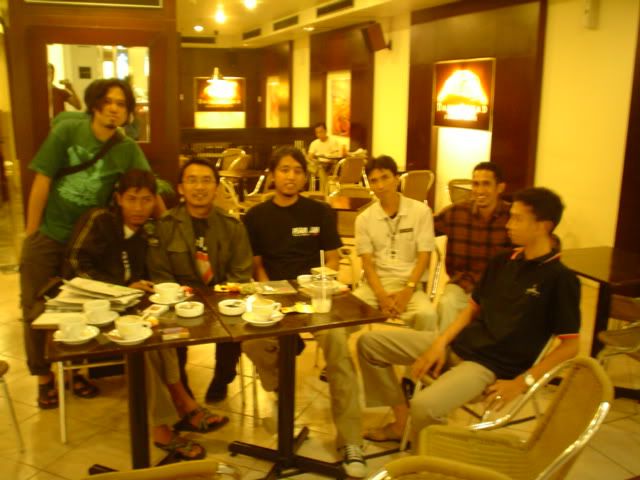
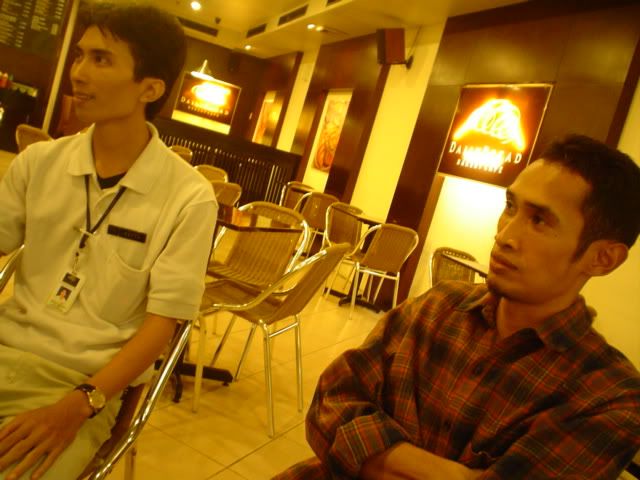
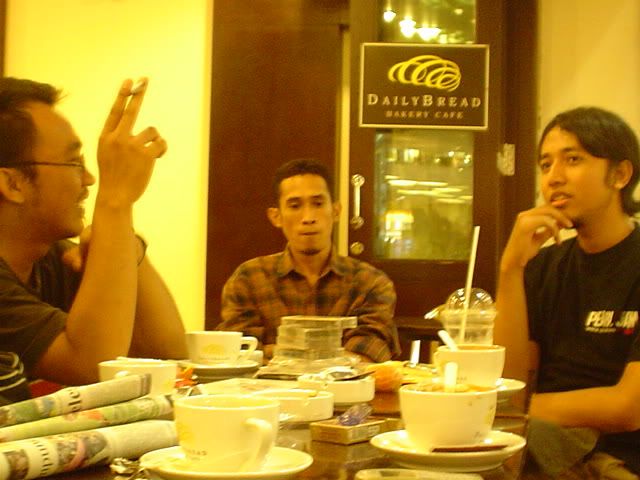
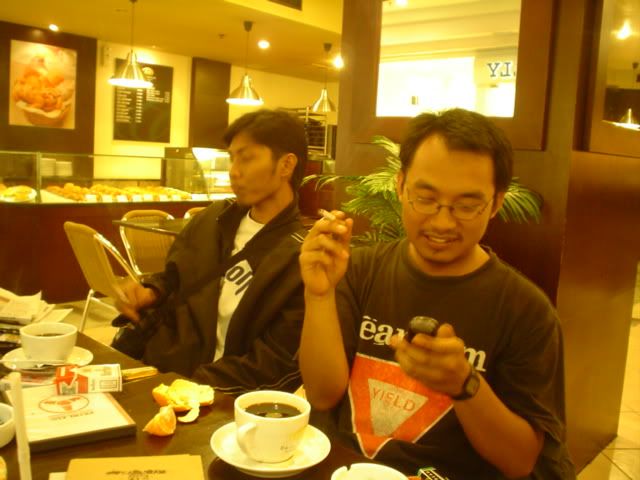
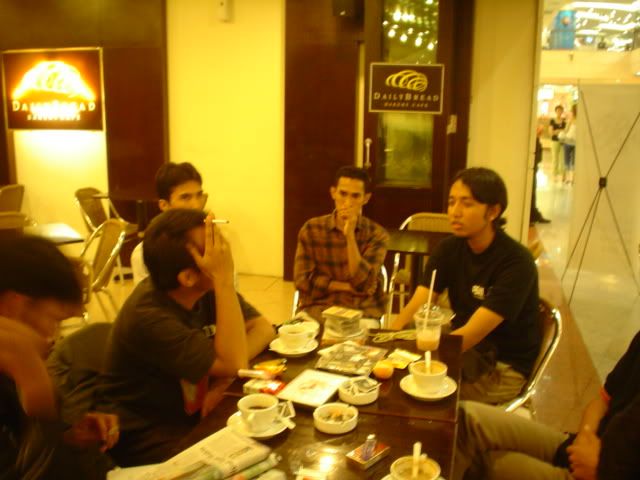
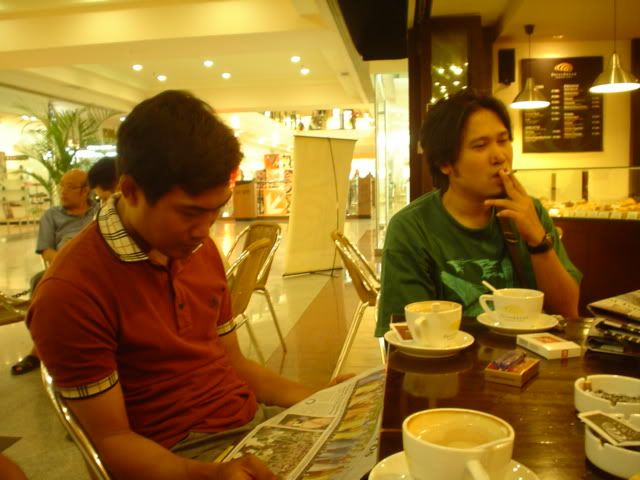

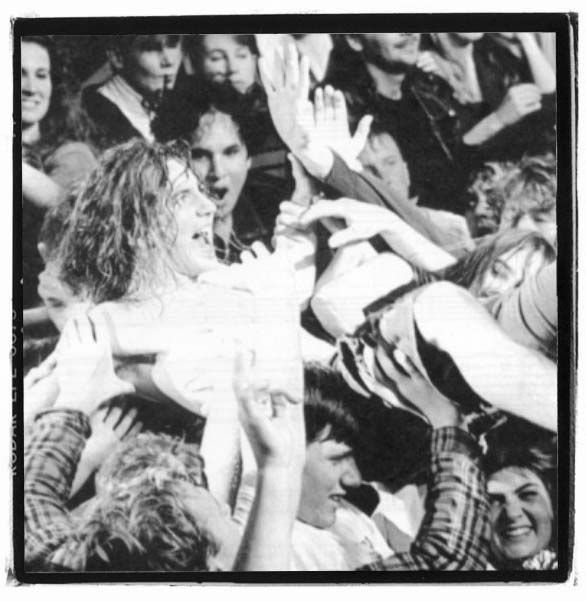
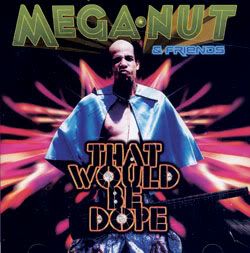
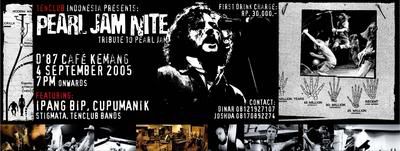
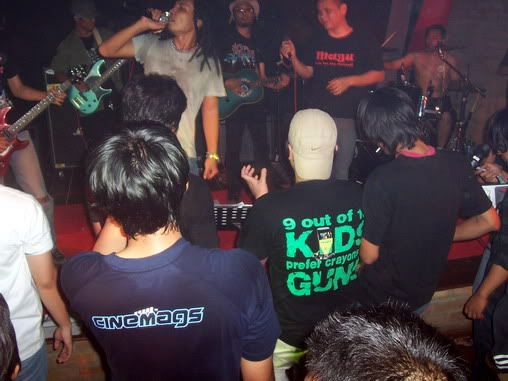
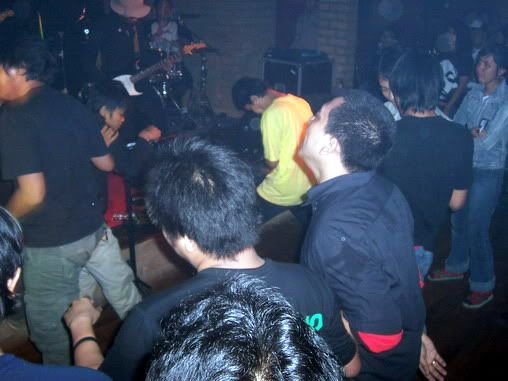
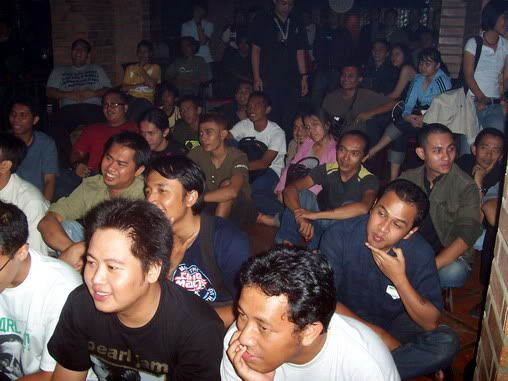
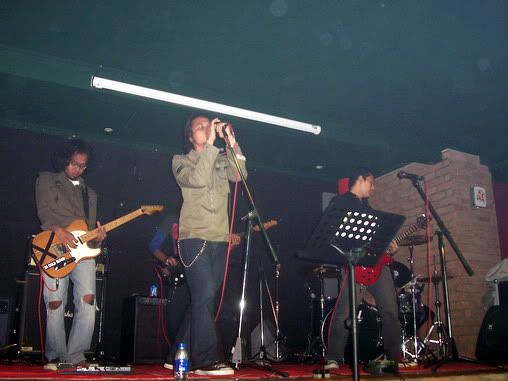
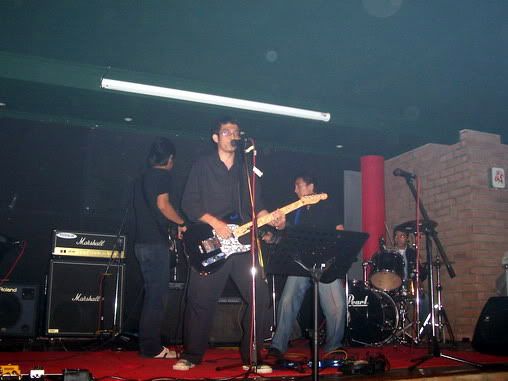
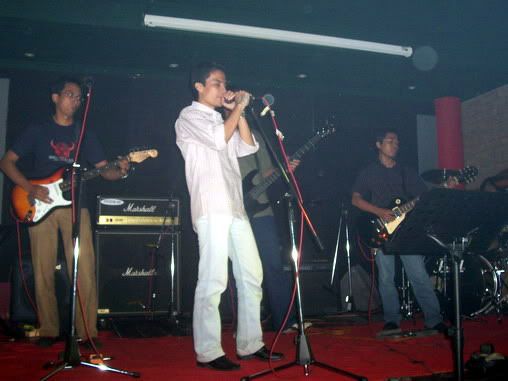
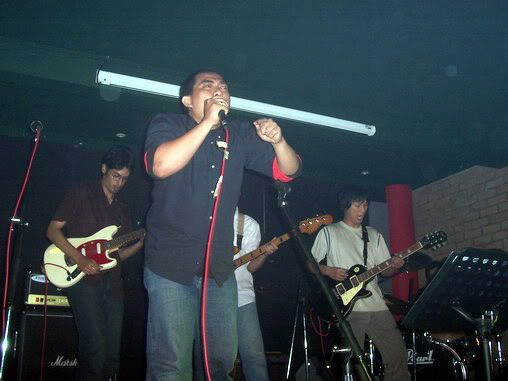
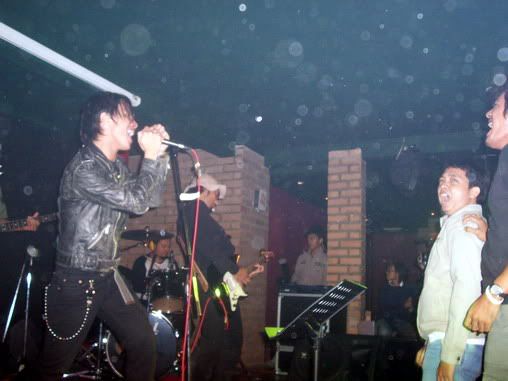
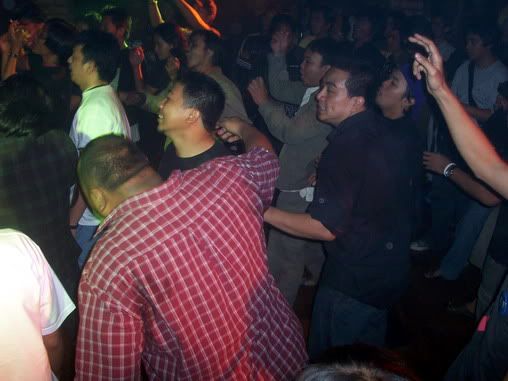
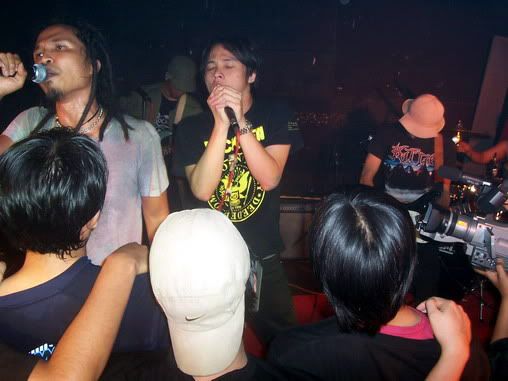
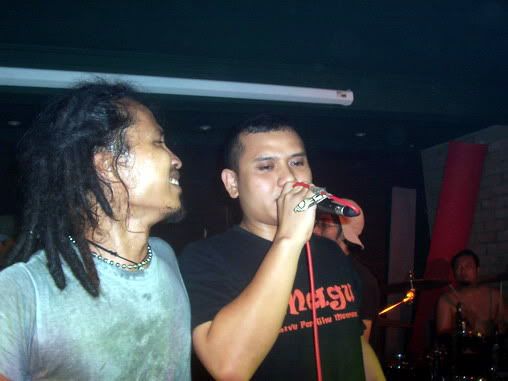
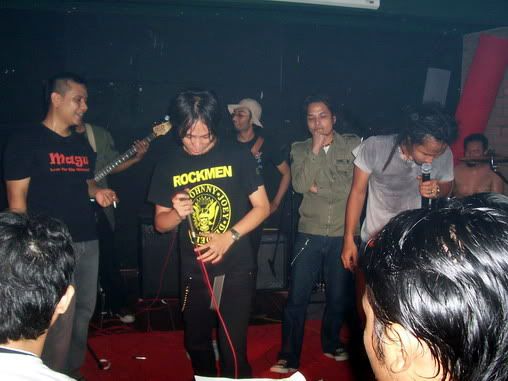
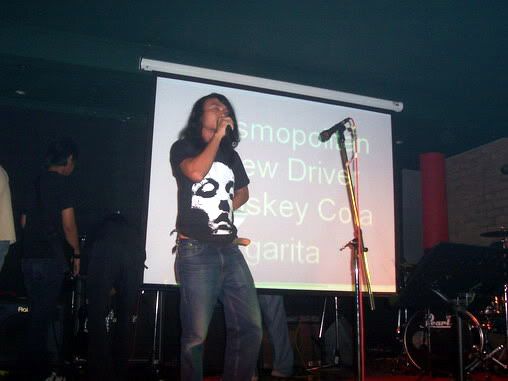
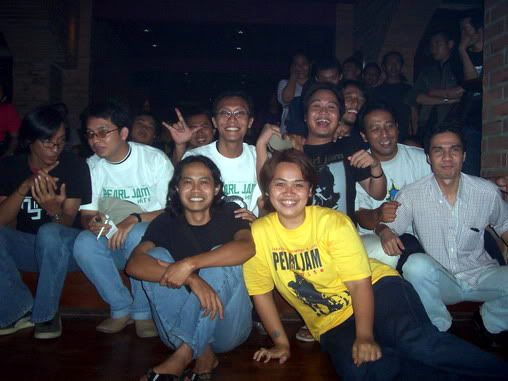
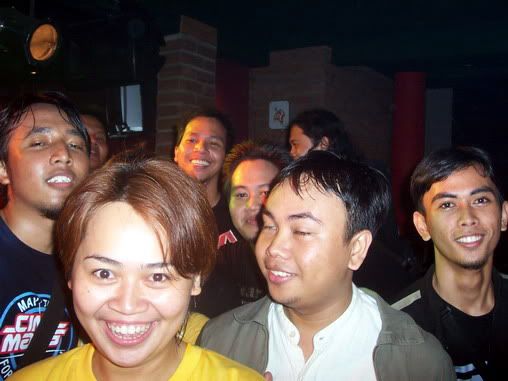
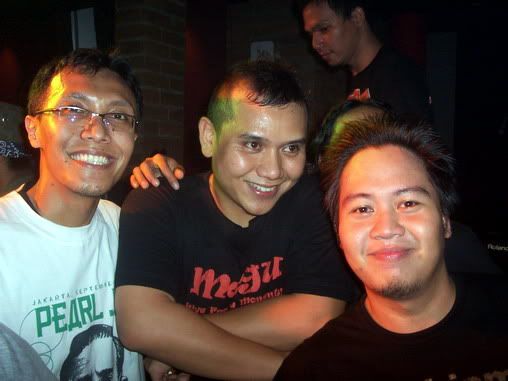
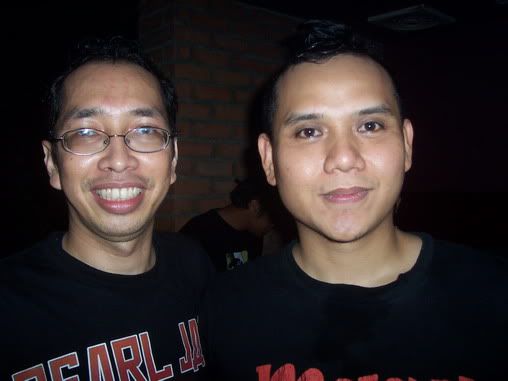



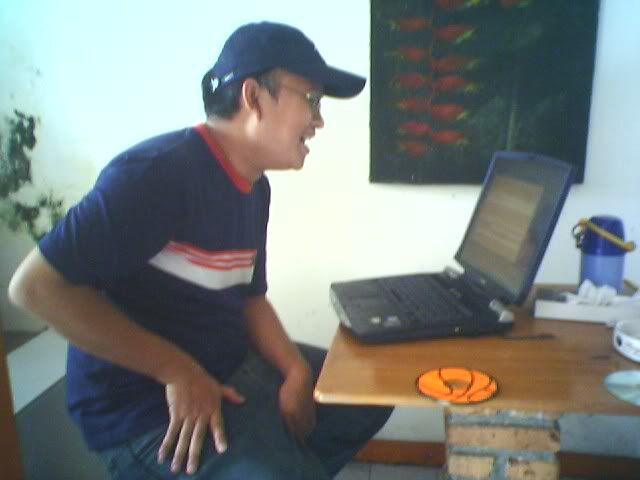





 Al Weisel
Al Weisel


